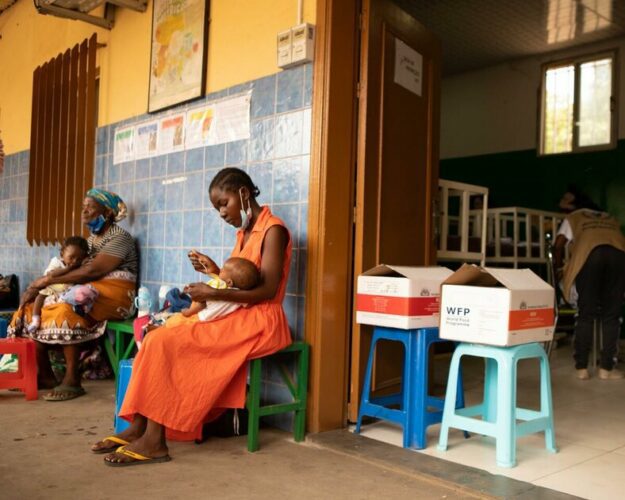Located in southwestern Africa, Angola is a resource-rich country that has made substantial economic and political progress since the end of the civil war in 2002. However, Angola’s agricultural resources remain underutilized, and the country is exposed to various risks related to climate change. Severe food insecurity continues to affect the livelihoods of many families due to cyclical droughts in the southwest of the country.
Angola is ranked 148 out of 189 countries in the 2020 Human Development Index, and 97 out of 116 in the 2021 Global Hunger Index. Although the number of undernourished people has decreased, food insecurity and undernutrition remain serious public health problems. This is driven by a range of factors including poverty, limited dietary diversity, poor sanitation and hygiene conditions, and gender inequality.
Rainfall shortages in the south and centre of the country significantly reduce agricultural production, which is the main source of food for rural households. The generalized rise in food prices also restricts households’ purchasing power. High levels of acute food insecurity as well as inadequate care and feeding practices contribute to high levels of acute malnutrition in the drought-affected areas, together with limited access to safe drinking water, and low infectious disease-vaccination coverage.
Angola is a traditional host country for refugees and asylum seekers, hosting more than 55,000. This population is largely composed of refugees from the Democratic Republic of the Congo (DRC). Most of them live in urban areas. The population of the Lóvua refugee settlement in Lunda Norte province has decreased considerably since the start of the DRC crisis in 2017, with approximately 6,500 refugees. However, 9 out of 10 Lóvua households still rely on food assistance as their main source of livelihood.
Source link : https://www.wfp.org/countries/angola
Author :
Publish date : 2009-08-27 08:00:59
Copyright for syndicated content belongs to the linked Source.
